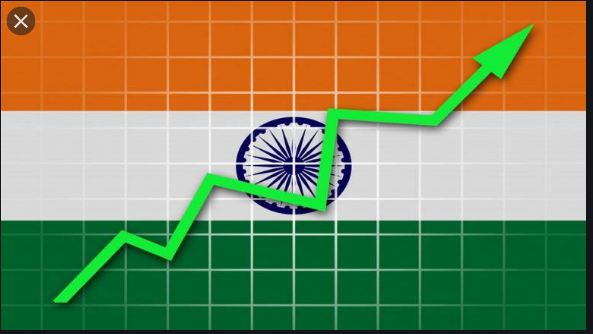Mumbai: International investment banker, financial services firm and wealth manager Credit Suisse has indicated that the Indian economy may have left behind its worst phase in many quarters, from where it can only rise and recover the lost ground.
After years of downgrades to India’s medium-term growth outlook, the estimates are likely to be upgraded now, Credit Suisse said in a report on Thursday.
Indian economy is showing signs of bottoming out, meaning that it has reached a lowest or worst point usually, before beginning to rise or improve, according to media reports.
The consensus forecasts of the Gross Domestic Product (GDP) growth for FY22 over FY20 stopped falling after October 2020 (currently at (-) 1 percent). Credit Suisse expects these estimates to be revised upwards.
“After years of downgrades to India’s medium-term growth outlook, we believe upgrades are now likely.
“The easing of monetary conditions reverses the tightness of 2015-18, with the large balance of payments (BoP) surpluses that have allowed for this, also providing the macroeconomic scope for a stimulus,” Credit Suisse co-head of equity strategy, Asia Pacific and India equity strategist, Neelkanth Mishra, said.
The multi-year real estate cycle is no longer a drag on the economy, he said, adding there is a pro-growth shift in India’s industrial policy.
The production-linked incentive (PLI) schemes could add 1.7 percent to GDP by FY27, or an average of 0.3-0.5 percent a year. The cuts in corporate tax rates in September 2019 and the labor law reforms should contribute as well.
The pro-cyclical fiscal policy was a drag on growth in the third quarter this fiscal (July-September 2020) and was now likely to support it as the earlier-than-expected rebound in economic momentum boosts (central and state) government tax receipts.
The restocking-led momentum in manufacturing is likely to boost GDP for a few quarters, it added.
Indian equities are no longer cheap, the report said, adding “in fact, they have rarely been more expensive”.
“Any reasonable investment strategy must factor in lower or at best unchanged P/E (price-to-earning) going forward – if Nifty and current FY-22 and FY-23 index EPS (earnings per share) forecasts sustain, in a year P/E ratios are only likely to go back to pre-pandemic levels,” it pointed out.
(VP)

